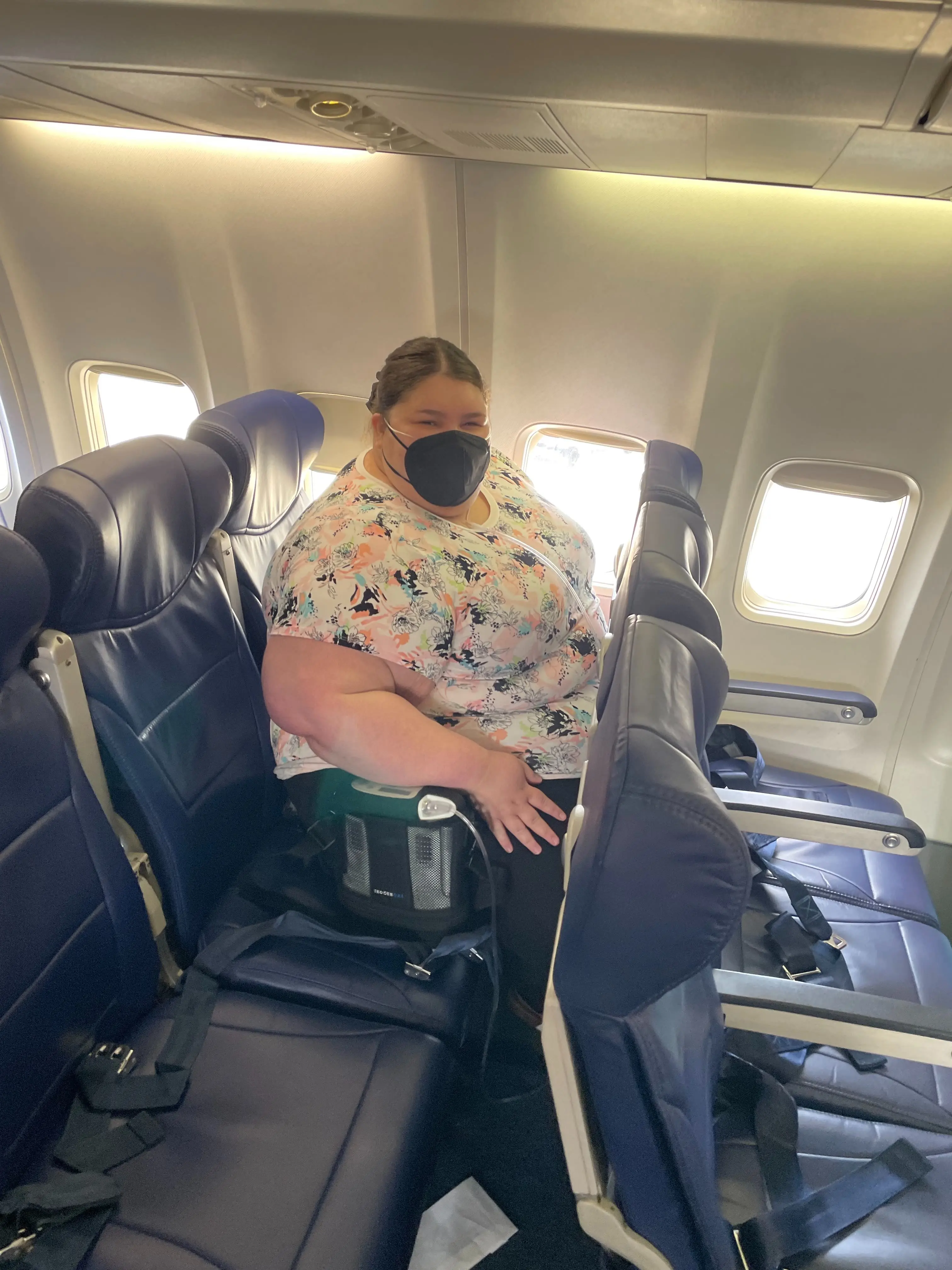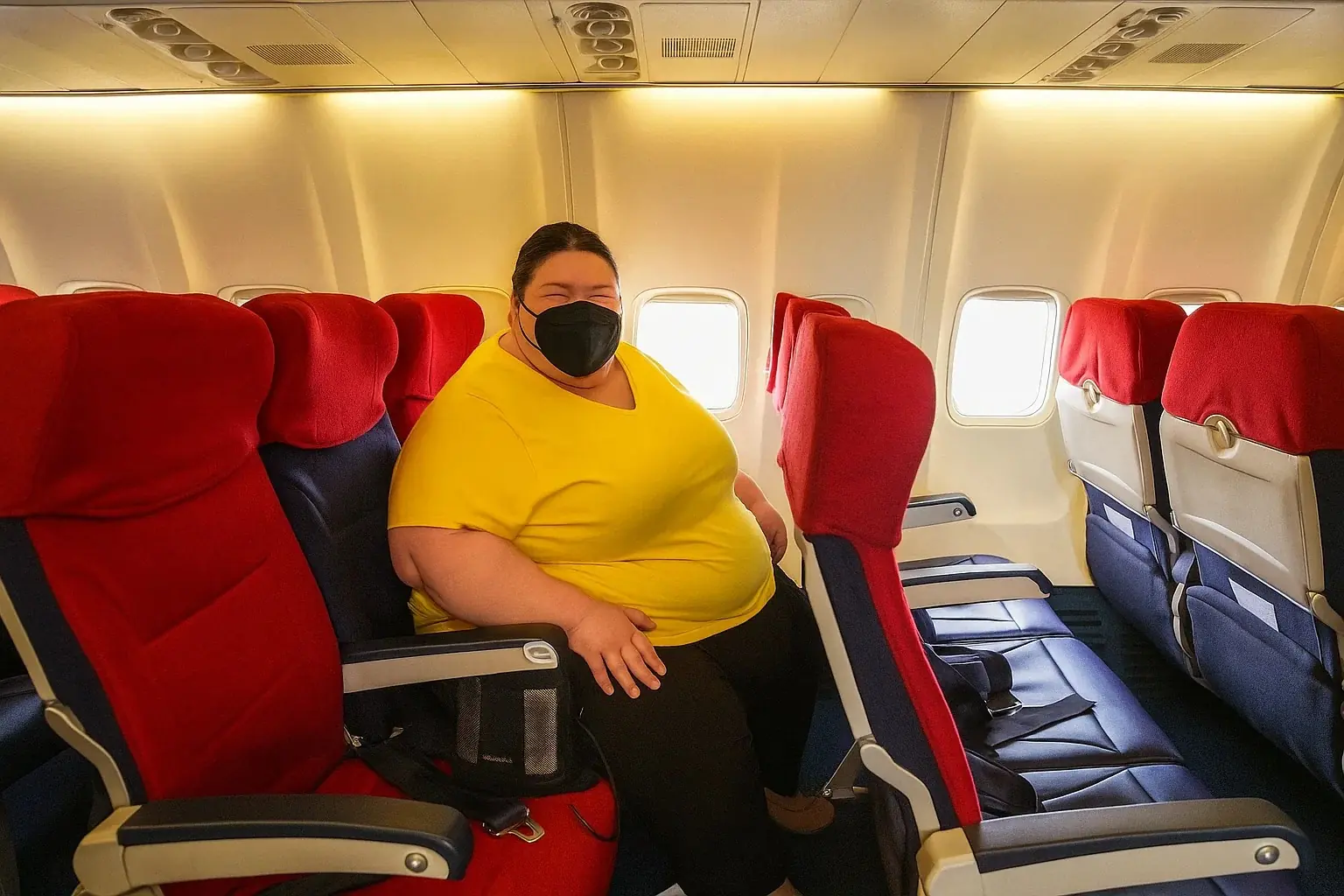
Southwest Airlines Faces Backlash Over Controversial New Plus-Size Seating Rule
A new airline policy is stirring up intense debate online. Southwest Airlines has announced changes to its seating rules that could force plus-size travelers to pay upfront for an additional seat—without the guarantee of a refund. The move, set to begin in January 2026, has sparked anger among advocacy groups while dividing public opinion worldwide.
A Policy Change That Divides Opinions
For years, Southwest Airlines has been praised by many travelers—particularly plus-size passengers—for its relatively flexible seating approach. Unlike most major carriers, it allowed travelers to either:
- Pay for an additional seat and claim a refund afterward, or
- Request a complimentary extra seat at the airport if needed.
This system made Southwest a preferred option for those concerned about comfort, fairness, and inclusivity in air travel. However, that goodwill may now be at risk.
Starting January 27, 2026, Southwest will assign seats for the first time, ending its long-standing open seating ritual that many considered part of its charm. More controversially, it will now require passengers who cannot fit into one seat to purchase a second seat at the time of booking. Refunds may still be available, but only under stricter conditions—if the flight departs with empty seats and both tickets were purchased within the same booking. Travelers will then need to submit a refund request within 90 days, leaving many uncertain about whether they’ll ever see that money returned.
What Happens If Travelers Don’t Book in Advance?
The airline clarified that passengers who fail to book a second seat in advance will be required to purchase one at the airport. However, this will be charged at the “walk-up fare”, which can be significantly higher than the original ticket price.
If no extra seat is available on a fully booked flight, the passenger will be rebooked onto another flight, potentially causing disruptions, missed connections, or higher costs.
This policy, according to Southwest, is part of a wider operational shift aimed at streamlining the boarding process and ensuring that all customers have space. But critics argue that it disproportionately impacts plus-size travelers, who already face limited options when flying.
Advocacy Groups Push Back
The backlash was swift. Tigress Osborn, executive director of the National Association to Advance Fat Acceptance, told The Washington Post that the policy could make flying financially impossible for many people.
“They can’t afford to take that gamble,” Osborn said. “We are hearing from a lot of people that this will literally mean they cannot travel by air anymore.”
Travel advocate Jason Vaughn, who runs the website Fat Travel Tested, echoed these concerns, calling the move short-sighted and damaging to Southwest’s customer identity:
“I think it’s going to make the flying experience worse for everybody. They have no idea anymore who their customer is—they’ve lost their identity.”
Even loyal fans of the airline, such as Corinne Fay, writer of the Big Undies newsletter, expressed personal distress.
“It honestly makes me want to cry,” Fay said. “We’re talking about the difference between spending $400 versus $800 or even more. It will make my life a lot harder.”
A Heated Online Debate
While advocacy groups voiced strong opposition, reactions across social media were deeply divided. On platforms like Reddit, many commenters argued that the policy was simply a matter of fairness.
- “If you need two seats to fly, then you should pay for two seats. Why is that controversial?” one user wrote.
- Another added: “Airlines charge extra luggage by the kilogram. Why shouldn’t people be charged extra for taking up more space?”
- A third argued from experience: “Tall people like me have been paying for extra legroom for years. It’s only fair.”
This split in public opinion highlights a broader cultural clash between calls for inclusivity in air travel and the commercial realities airlines face as they try to maximize efficiency and profits.
Southwest’s Official Response
In a statement to UNILAD, Southwest defended the update:
“We are updating many policies as we prepare our operation, Employees, and Customers for assigned seating on January 27, 2026. To ensure space, we are communicating to Customers who have previously used the extra seat policy that they should purchase it at booking.”
The airline stressed that its goal is to balance customer needs with operational efficiency, though it acknowledged the change may not be welcomed by all.
The Bigger Picture
Airline seating policies have long been a source of controversy—from shrinking seat widths and reduced legroom to rising baggage fees. Southwest’s decision adds another chapter to the debate, raising questions about how airlines can remain profitable while ensuring fair treatment for all passengers.
At its core, the issue reflects broader concerns about accessibility, affordability, and the inclusivity of public spaces. For plus-size travelers, this isn’t just about paying for an extra seat—it’s about dignity, equality, and the basic ability to travel without facing financial penalties.
Final Thoughts
Southwest Airlines’ new seating rule could mark a turning point in how the aviation industry addresses the needs of diverse body types. Whether this policy is remembered as a practical adjustment or a discriminatory setback will depend on how it’s implemented—and how passengers respond.
What’s certain is that this move has ignited a global conversation that goes far beyond one airline. It’s about who gets to fly, at what cost, and whether the skies remain open to everyone.
News in the same category


Scientists predict what influencers will look like in 2050 and it's horrifying

World-famous hacker reveals scary reason why you should never share iPhone chargers

Terri Irwin makes heartbreaking admission 19 years after Steve’s death

Everything you need to know about upcoming 'doomsday alarm' that will alert millions of phones this Sunday

Airline deliberately crashed Boeing 727 plane to discover the safest seats during a crash

Amy Schumer responds after John Cena admitted shocking scene where he was ‘inside her’ was ‘real embarrassing’
Amy Schumer has hilariously responded after John Cena admitted their unforgettable scene in Trainwreck was “real embarrassing” to film. The comedian’s playful comeback has reignited buzz around one of the rom-com’s most iconic moments.

Sick teacher spent final hours in hospital finishing students' grades before tragically passing away
A dedicated Texas teacher spent his final hours in the hospital finishing grades for his students, even as his health was failing. His moving story has touched thousands, highlighting the quiet sacrifices educators make every day.

The Rock Goes Viral After Showing Slim New Appearance That Sparks Concern
While fans may need time to adjust to this unexpected transformation, Johnson’s commitment to his craft suggests the new look is less about image and more about storytelling.

Georgia man sues Delta Air Lines alleging flight attendant slapped him in the middle of a flight
The incident, however, has sparked a wave of online debate, with some demanding greater scrutiny of flight attendant behavior and others questioning whether tensions in confined airspaces can escalate too quickly.

Uganda’s $12 Trillion Gold Discovery Could Rewrite Its Future
Uganda now stands at the crossroads of history, holding a treasure that could lift millions out of poverty—or plunge the nation into the very struggles it hopes to escape.

The Shocking Truth About Hypnic Jerks: Why Your Body Jumps When You Fall Asleep
Hypnic jerks may feel startling, but they’re a fascinating glimpse into the complex communication between the brain and body as we fall asleep.

AI reveals the most 'dangerous' threat right now that could send Earth into WWIII

These three iconic iPhones set to become obsolete this month making them unable to update again

Reason why Trump just hosted a lavish dinner for Mark Zuckerberg, Bill Gates, Sam Altman and Tim Cook

California hospital staff fired following 'dehumanizing' TikTok ridiculing their patients

Astronaut drove 900 miles to attack her ex's girlfriend in disturbing case that changed NASA forever

CEO speaks out after going viral as 'most-hated man in America'

Nuclear expert explains exactly what would happen to you if you saw an atomic bomb explode
News Post

5 Delicious Eating Habits That Put the Whole Family at Risk of C:ancer – Extremely Dangerous and Should Be Avoided Immediately

Be careful — one single action at the airport could ruin your en:tire life.

Condolences to those who are using these 4 types of electric kettles: Throw them away while you still can, thousands of people have already developed c:ancer.

How Magnesium Keeps Your Heart Rhythm Healthy

Why Do I Cough When Taking a Deep Breath?

Taking the Stairs Could Help You Live Longer

Purple Veins on Your Legs: When to Worry

Man develops 'pork worms' in his brain after years of doing this specific cooking habit

Signs Your Cortisol Is Dangerously High

Woman who d::ied for 24 minutes before being brought back to life details exactly how it felt

The Sleep Saboteur: The One Thing You Should Never Do When You Wake Up at Night

Nightly Habits That Could Increase Your Risk of Stroke

🚨 ALERT! 7 Strange Signs Your Kidneys Are Crying for Help

Vitamin E Oil uses for Skin – Glowing Skin, Dark Circles & Wrinkles

DIY Aloevera ice cubes to Remove Dark Spots & Clear Skin | Aloevera Benefits for Skin

Tips for pickling white eggplants that are crispy, do not turn black, and do not form scum when left for a long time

11 Secret Baking Soda Tricks for Women That Will Change Your Life!

Mattresses used for a long time are dirty and smelly, sprinkle this on the surface, no need to wash with water, it will be clean as new

‘Healthy Man’ Diagnosed With Cancer After Noticing Dog’s Bizarre Behavior Around Him
